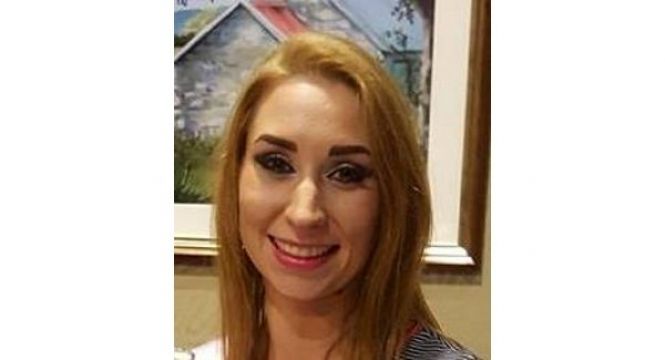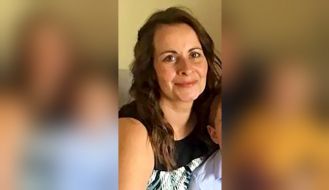Rafal Karaczyn, who strangled his wife Natalia in their family home after she had sought to leave him and build her own life, has been found guilty of murder.
Following the verdict Natalia's sister described her as a "loving mum, sister and daughter who had plans and dreams that will never come true." Magdalena McMorrow added: "Soon the trial will be over and everyone will forget and move on but not us. We will never forget or move on."
Karaczyn, who texted his wife's phone asking where she was after he had murdered her, dumped her body in woodlands and later said she had been killed by Travellers. It is his second time to stand trial accused of the murder, with his first trial being halted in March last year for Covid-related issues when it was close to conclusion.
The jury of seven women and four men took two days to reject Karaczyn's claim that he was provoked into strangling his wife after she slapped him and refused to tell him where she had been. The decision was not unanimous but was agreed by 10 of the 11 jurors.
Following the jury verdict Natalia's sister Magdalena McMorrow said she remembers the pain and anxiety she felt when her sister went missing and then the shock of receiving the "terrible news" that her sister was dead.
She said her sister's death impacted every member of her family and caused her father's death as he couldn't cope with the "hate and pain". Ms McMorrow shared a room with her sister for 18 years and said, "we always had each other's back. I definitely didn't tell her enough how much I loved her and if I could again I would tell her every day."
The youngest of Natalia's three children doesn't know who his mother is, she said, adding: "It breaks my heart when they are happy because I want my sister to be there to see it, and it breaks my heart when they are sad because I want Natalia to be there to comfort them."
She added: "Every morning I wake up and hope it was all a bad dream. I ask why and will never get the answer. Soon the trial will be over and everyone will forget and move on but not us. We will never forget or move on."
Brendan Grehan SC for the accused said his client wishes to say sorry to Natalia's family and in particular to Magdalena.
Following the statement by Ms McMorrow Ms Justice Eileen Creedon sentenced Karaczyn to the mandatory term of life imprisonment.
Rafal Karaczyn (35) of Crozon Park, Sligo had pleaded guilty to manslaughter but not guilty to murder for the unlawful killing of his wife Natalia Karaczyn on April 29th, 2018.
Wife wanted him out
His Central Criminal Court trial heard that Natalia wanted to split from her husband and wanted him out of their home. When she arrived home in the early hours on a Sunday morning her husband came into her bedroom and demanded to know where she had been. He told gardai that she pushed him out of the room and when he returned and again demanded to know where she had been she slapped him.
He told gardai: "I really don't know what happened. I started to strangle her and after a while she started to slide down."
Karaczyn claimed in his defence that Natalia had provoked him to such an extent that he lost all self control and argued that he should therefore be found guilty of manslaughter and not murder.
Outside court Superintendent Mandy Gaynor said it had been a "long sad journey" for Natalia's family. They had put their trust in An Garda Siochana to investigate the "callous act", she said, and the garda investigation had resulted in a murder verdict. She thanked the community in Sligo, in particular the members of the eastern European community, who had helped with the investigation.
Morning of attack
Early on Sunday morning, after he had strangled his wife to death, Rafal Karaczyn texted his wife's phone asking: "Where are you?" It was the start of a ruse that would continue until the following Wednesday, in which he first claimed his wife did not come home following her night out and would later claim she had been killed by Travellers.
Magdalena McMorrow told the trial she was distraught and crying after Rafal told her Natalia had not come home and hadn't contacted anyone. It wasn't like her, she said, she would always be there when her children woke up.
Magdalena contacted all her sister's friends and rang local hospitals. She reported Natalia missing to gardai and drove around Sligo trying to find traces of her last movements. At about 4pm staff at the nearby Crozon Inn let her look at CCTV footage which showed Natalia about 50 metres from her house walking in the direction of her home at about 6am.
She was with Gvido Ozols, a man she had met the previous night in the Garavogue pub. They had gone back to his place and had sex before he walked her home. Mr Ozols left her at the Crozon Inn to let her walk the last 50 metres alone.
Arrest
Gardaí also harvested CCTV from a neighbour of the Karaczyns which showed Natalia entering her house. Their suspicions had already been aroused by how nervous Karaczyn appeared to be and the fact that when two gardaí called to his home they found Natalia's handbag with her purse inside containing her ID and bank card. They decided to arrest Karaczyn, but he maintained that Natalia had not come home and he didn't know where she was.
He was released on Monday morning at about 5am and went to his friend Piotr Krawacki's house. When Magdalena arrived, Karaczyn broke down and told them that Natalia was dead. He said he found her dead body in her room on Sunday morning and, panicking, decided to put her in the boot of the car and dump her in the woods.
He told Magdalena, and would later tell gardai, that a Traveller came to his house some weeks previously, put a gun to his head and told him Natalia had "messed with the wrong woman".
He said the same man had approached him the day before Natalia's death and threatened to kill his children if he did not leave a window open so they could get inside the house. Karaczyn claimed he woke up that Sunday morning to find his wife's dead body in her room.
Interviews
In a series of interviews gardaí repeatedly asked Karaczyn to tell the truth, but he maintained the lie until, following his seventh interview, he spoke privately to Magdalena in an interview room in Ballymote Garda Station. Having come clean to his sister-in-law he told gardai that he awoke on Sunday morning when he heard Natalia's bedroom door shut.
He went into her room and asked: "Where have you been?" He said he used a "hard voice" and she pushed him. He went into the room again and asked where she had been. "She slapped me twice and I really don't know what happened. I started to strangle her and after a while she started to slide down."
He added: "I am very sorry I did it. I really, really loved her. I can't forgive myself."
He demonstrated to gardai how he strangled his wife with both hands. When asked what he felt he said he doesn't remember but afterwards, when he lay beside her, he said he felt "very big regret and grief."
He said he didn't injure her in any other way but when he was carrying her body through his kitchen he dropped her on the tiled floor. He said she may have suffered further injuries when in the boot of the car and when he pulled her dead body through a fence into the wooded area where she was discovered.
Relationship
The garda investigation revealed that the relationship between Karaczyn and his wife had been strained for at least one year. A series of text exchanges between them showed Natalia repeatedly telling him that she wanted nothing to do with him and demanding that he leave their home. Karaczyn repeatedly expressed his love for his wife and desire to fix their marriage.
The messages also showed that Natalia was frustrated that her husband kept demanding to know where she had been and with whom.
In one exchange she told Karaczyn that he makes her sick, that he is an "imbecile" and has never achieved anything on his own. She suggested that he check himself into a psychiatric ward and told him: "Stop feeling sorry for yourself because it's sad." In another text she said: "I don't give a shit. You are a grown man, stop texting me."
At one point she told him that he can stay, "if you leave me alone and I have my own life."
Det Sgt Oliver McHale said that on April 14th, two weeks before her death, she told him: "Get out of my life for once and for all." When he said he would leave their home the following June she said, "not June, now."
On April 27th, two days before Karaczyn strangled his wife to death, she told him never to ask again where she was going or what she was doing and with whom. "You have no right," she said.
In a later text she demanded that he return her car and said: "You can no longer set foot in this house."
Defence of provocation
Karaczyn's defence of provocation arose from his statements to gardaí that he was "under big stress" or in a "rage" when he strangled his wife. Trial judge Ms Justice Eileen Creedon told the jury that provocation can reduce murder to manslaughter where the jury accepts that the deceased did or said something that caused the accused to suffer a sudden, overwhelming loss of self-control that meant he could not stop himself inflicting death or serious injury.
She said Natalia's actions would have to be outside the bounds of ordinary interactions and the reaction from Karaczyn cannot be based on "warped notions of honour" or "hurt to male pride". Provocation does not apply, the judge said, where an ordinary person from the accused's background in the same circumstances would be able to exercise self-restraint.
The action relied on by the defence as evidence of provocation was Ms Karaczyn slapping her husband and refusing to tell him where she had been. Prosecution counsel Conor Devally described the alleged provocation as "pathetically mild".
Defence counsel Brendan Grehan SC described his client as a "devoted father" who lost all self control and did something he would regret for the rest of his life.
Counsel asked the jury to imagine a scenario where a man comes home early in the morning with lipstick on his collar, smelling of cheap perfume and his irate wife demands an account. He continued: "He tells her to get lost, slaps her and pushes her around and she grabs a knife and stabs him. Could anyone suggest she had planned it, that it was premeditated, that it was akin to where someone plans to bring about a result, or just someone who has lost it in the emotional circumstances into which they are thrown?"
He asked the jury to treat Mr Karaczyn in the same way that they would treat such a woman. Mr Grehan finished by saying his client, "acted in an uncharacteristic fashion and caused the death of the very thing he loved the most."







